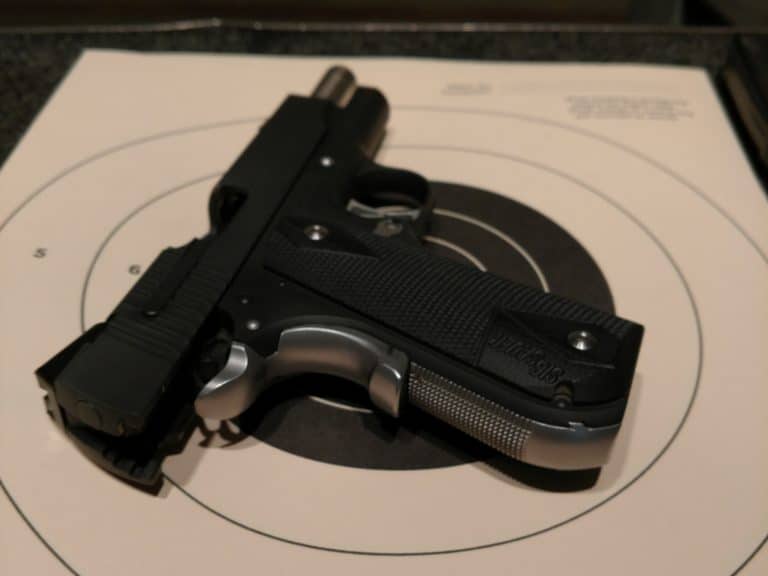Last week the politics of gun carry hit a major milestone when, upon the signing of a permitless carry bill in Alabama, the policy of allowing legal gun owners to carry a concealed firearm without a permit became the most popular standard in the country. This week saw that trend continue with the adoption of permitless gun-carry in the state of Ohio after Governor Mike DeWine (R.) signed the bill into law Monday.
While his signing of the bill was not as balance-altering as his immediate predecessor, it did reveal something important about the growing political popularity of permitless gun-carry.
Until now, permitless carry legislation was a policy choice largely reserved for deeply-red states with comfortable Republican majorities in both chambers of the state legislature as well as control of the Governor’s mansion (Vermont was the main exception to this rule, but more on that later).
The policy swept through states with Republican trifectas like wildfire after 2010 but was rebuffed in states where Republicans either did not control both the legislative and executive branches (see the permitless carry bill vetoes in Pennsylvania and Louisiana) or did not enjoy comfortable enough majorities to push a bill through (e.g. permitless carry dying in the Florida legislature 3 years in a row despite Republican control and a Republican Governor).
Which brings us to Ohio. Republicans currently enjoy unified control of both the legislative and executive branches, but it remains a state with a reputation for swing-voters and a competitive Democratic party. It has trended Republican in recent years to be sure, but many campaign officials still consider it a battleground state, and it continues to send a split party Senate delegation to Washington.
DeWine also has something of a reputation for being a moderate on the issue of guns. Following a 2019 mass shooting in Dayton, Ohio, DeWine publicly called for certain gun-control proposals, including red-flag legislation and universal background checks. While the policies did not come to fruition, legislation like that is not typically supported in other Republican-governed permitless-carry states.
And yet he still signed permitless carry into law, making Ohio the second-most populous state to enact the policy after Texas. The fact that a governor with a history of support for gun-control legislation—in a populous state with multiple urban centers and a history of competitive elections—still felt compelled to enact permitless carry is further evidence that the political inertia of gun carry liberalization is continuing apace.
A similar effort in Georgia will provide yet another test case for this phenomenon. Though Georgia has long been considered a red state, it has become more competitive in recent years. Both Senators representing the state are currently Democrats, to provide an example. And yet it too seems poised to pass and sign into law a permitless carry bill this year.
This shift toward more competitive states being open to adopting permitless carry is likely indicative of a political calculation based on recent history. For Republican politicians, even the more moderate ones, there doesn’t seem to be much of a political price to be paid for supporting such laws.
To date, there hasn’t been a single state that has decided to repeal permitless carry, even in deep-blue Vermont where it has been the law of the land since 1777. Likewise, there hasn’t been a single instance of a “shall-issue” state choosing to revert back to the stricter “may-issue” standard after adoption either.
For all the initial criticism levied by gun-control groups–and even certain law enforcement organizations–about the impending chaos and danger that liberalized carry laws will bring, there hasn’t seemed to have been any sustained backlash after implementation. Nor has there been sufficient political will to overturn the policy in any state.
It’s certainly possible that a backlash may at some point occur. But the momentum behind gun-carry policy has only been pushing one way so far: toward fewer restrictions for gun owners who wish to carry a gun for self-defense.






2 Responses
Has there been any investigation into local pushback via obstructionist laws, as discussed briefly on the podcast? It seems down to city council level, it is possible to curtail civil rights through bureaucracy.
Will we see any sort of preemption standard enforced for these rights, due to wanton disregard?
The only other standard I have to reference would be integration laws from Brown; merely because that is the most notable historically. Without enforcement of the hypothetical Bruen ruling, as with Heller, it seems lower courts may permit local runaway yet again.
That’s a good question. I believe most of the states passing permitless carry have preemption laws. It’s unlikely those states are going to see a lot of local variation. However, you have seen states like Colorado and Virginia allow more localities to implement stricter gun carry laws than the state standard. So, if permitless carry makes it to bluer state, you could see variation. But I think that’s a long way off.